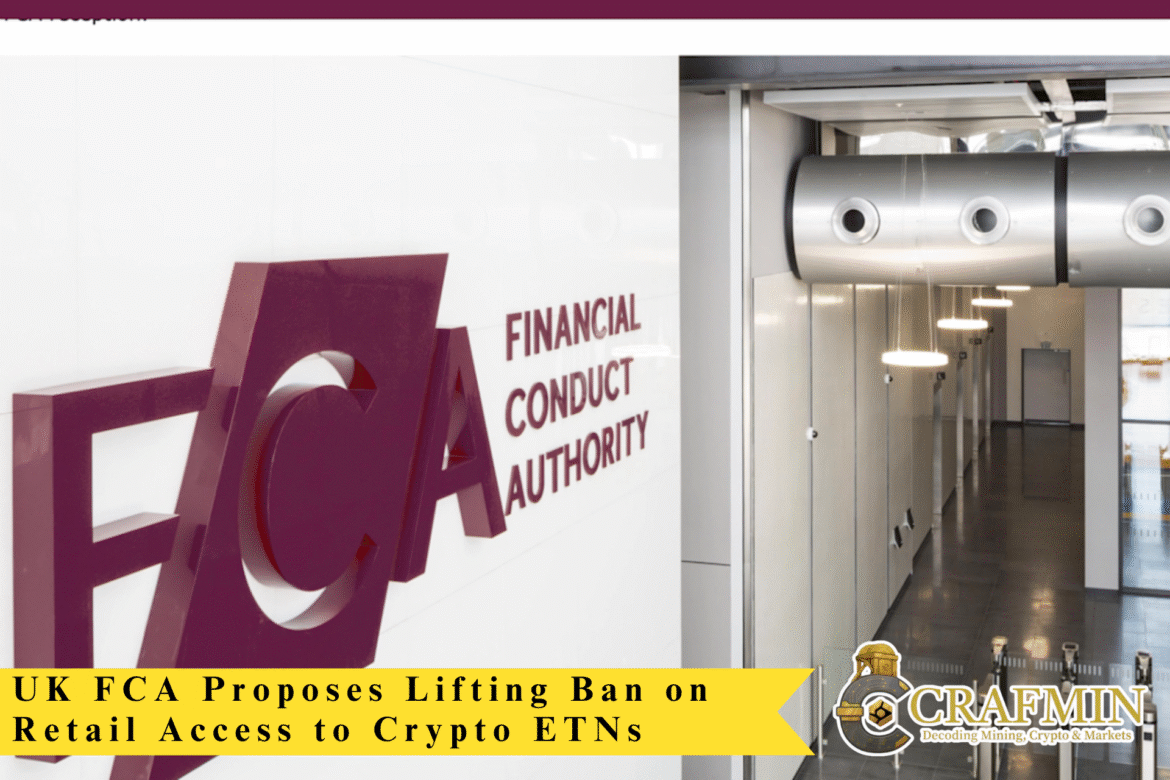In a significant policy shift, the UK’s Financial Conduct Authority (FCA) has announced plans to lift its ban on retail investors purchasing crypto exchange-traded notes (ETNs). This move, aimed at supporting economic growth and the digital asset sector, marks a departure from the FCA’s previous stance that deemed such products “ill-suited” for retail consumers due to high risks.
Background on the Ban

Crypto ownership percentage in the US, UK, France, Singapore, Italy and Australia. Source: Gemini
The FCA initially imposed the ban on crypto ETNs for retail investors in January 2021, citing concerns over the high volatility and potential for significant losses associated with these products. At the time, the regulator argued that retail consumers lacked the necessary understanding of the risks involved in crypto investments, leading to the prohibition of the sale, marketing, and distribution of these products to individual investors.
Rationale Behind the Policy Shift
The decision to reconsider the ban comes as part of the UK’s broader strategy to enhance its competitiveness in the global digital asset market. The FCA stated that allowing retail investors to buy ETNs would support growth and competitiveness, aligning with the government’s efforts to foster innovation and economic development in the financial sector.
David Geale, the FCA’s executive director of payments and digital assets, emphasized the importance of balancing risk and consumer choice. He noted that lifting the ban would enable individuals to make informed decisions about high-risk investments, acknowledging that they could potentially lose all their money.
Regulatory Safeguards and Consumer Protection
While the FCA plans to lift the ban, it also intends to implement stringent regulatory measures to protect retail investors. The sale of crypto ETNs to individual consumers will be permitted only through FCA-approved investment exchanges. Additionally, financial promotion rules will apply, ensuring that consumers receive clear information about the risks involved and are not offered inappropriate incentives to invest.
The FCA’s proposal is currently open for consultation, allowing stakeholders to provide feedback on the planned changes. The regulator has made it clear that the ban on retail investors trading cryptoasset derivatives will remain in place, reflecting ongoing concerns about the suitability of these complex products for individual consumers.
Industry Response and Market Implications
The proposed policy change has been met with a positive response from the crypto industry. Legal experts and market participants view the move as a sign of the UK’s increasing openness toward digital assets. Diego Ballon Ossio, a partner at British law firm Clifford Chance, described the decision as aligning with the UK’s ambition to position itself as a sophisticated jurisdiction in the crypto space.
Kraken’s UK General Manager, Bivu Das, hailed the proposal as a major milestone for the UK’s crypto ecosystem, noting that it reflects the FCA’s acknowledgment of the market’s maturation and the need to update outdated restrictions.
The lifting of the ban is expected to provide retail investors with indirect exposure to cryptocurrencies like Bitcoin and Ethereum without owning the assets directly. This development could lead to increased participation in the crypto market by individual investors, potentially boosting liquidity and market depth.
Also Read: Circle’s IPO Ushers in a New Era for Crypto’s Public Market Presence
Comparison with International Regulatory Approaches
The UK’s decision to lift the ban on retail access to crypto ETNs contrasts with regulatory approaches in other jurisdictions. While the European Union has implemented the Markets in Crypto-Assets (MiCA) regulation to provide a comprehensive framework for crypto assets, the UK appears to be aligning more closely with the United States’ approach, which focuses on integrating crypto regulation within existing financial frameworks.
By adopting a more flexible regulatory stance, the UK aims to position itself as a competitive hub for digital asset innovation, attracting investment and fostering the growth of the crypto industry.
Conclusion
The FCA’s proposal to lift the ban on retail investors purchasing crypto ETNs represents a significant shift in the UK’s approach to digital asset regulation. By balancing the need for consumer protection with the desire to support market growth, the FCA is taking steps to enhance the UK’s position in the global crypto landscape. As the consultation process unfolds, stakeholders will have the opportunity to shape the future of crypto investment in the UK, ensuring that regulatory frameworks evolve in line with market developments.

